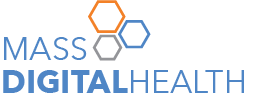In the Commonwealth of Massachusetts, digital health and health care are significant and frequent topics of policy conversations. MeHI maintains a pulse on governmental actions and perspectives relative to the state's health care, digital health, and related economic initiatives.
This page contains articles, announcements and reports that present information on policy recommendations, legislative briefs, and funding announcements. We will continuously curate and share relevant new content as it emerges.
The following are healthcare policy organizations that are additional resources for current policy updates and details:
Center for Health Information and Analysis (CHIA)
Health Policy Commission (HPC)
Massachusetts Health Data Consortium
The Network for Excellence in Health Innovation (NEHI)
MassHealth
The Health Care Division of the Office of the Attorney General works to promote public health and to improve the efficiency and effectiveness of the health care system. The Division has conducted groundbreaking examinations of health care cost trends and cost drivers that have directly led to new laws that have increased the transparency of the health care market and encouraged more efficient health care purchasing. The Division also provides guidance and public reporting on the community benefits offered by nonprofit hospitals and health plans through the innovative Community Benefits Program.
2015 Health Care Cost Trends & Cost Drivers Report
2013 Health Care Cost Trends & Cost Drivers Report
Many organizations worked closely together to reach out to providers and to gather input and information regarding the EHR vendor landscape in 2012. The overarching goal for this project was to determine where the Last Mile Management Office (LMMO) can have the greatest impact interfacing the statewide HIE services with the Commonwealth’s providers and provider organizations. MeHI identified the following specific goals for the project:
- Identify the EHR vendors with products currently installed with Massachusetts providers and estimate the market share (as defined by number of providers served) by provider segment for the vendors that have a significant presence.
- Rank EHR vendors by provider segment
- Identify and categorize the HIE users and their currently anticipated deployment configurations. (For this initial phase, MeHI is focusing only on those providers that are currently using an EHR system.)
- Assess and document the current development timeline of major EHR vendors for offering customers production ready software versions that are compliant with both stage 2 meaningful use and Direct.
- Identify specific EHR integration recommendations to inform the LMMO strategy
December 2010
Published by: Massachusetts Technology Collaborative and New England Healthcare Institute
The New England Healthcare Institute (NEHI) and the Massachusetts Technology Collaborative released a report that shows tele-ICU technology could save 350 additional lives, benefit hospitals financially, and save more than $122 million annually if broadly and effectively implemented across Massachusetts. Intensive care units (ICUs) are a vitally important component of health care in U.S. hospitals, treating six million of the sickest and oldest patients every year. The choices about how to manage ICUs carry high stakes: ICUs have both the highest mortality and the highest costs in health care, accounting for 4.1 percent of the nation’s $2.6 trillion in annual health care spending, or nearly $107 billion per year.
The Massachusetts eHealth Institute (MeHI) at the Massachusetts Technology Collaborative presents the "2014 MeHI Provider and Consumer Health IT Research Study." Sponsored by MeHI and conducted by the respected health industry research firm Market Decisions LLC, this study is designed to provide comprehensive information on the use, needs and attitudes towards Health IT among Massachusetts healthcare providers and consumers, and to identify key drivers for eHealth adoption across the Commonwealth.
View MeHI's Provider & Consumer Health IT Research Study
by the Health Policy Commission (HPC)
Consistent with the statutory mandate of the Health Policy Commission (HPC), this 2014 Cost Trends Report presents an overview of healthcare spending and delivery in Massachusetts, opportunities to improve quality and efficiency, and progress in key areas and contains recommendations for strategies to increase quality and efficiency in the Commonwealth.
Past HPC reports have identified four areas of opportunity: fostering a value-based market; promoting an efficient, high-quality healthcare delivery system; advancing alternative payment methods (APMs); and advancing transparency and data availability. The HPC continues to emphasize these four areas in its analysis and recommendations.
